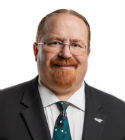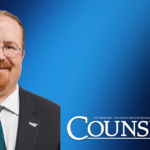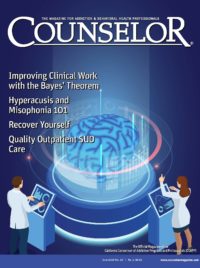Share
It seems these days that one cannot open a newspaper or turn on the television without seeing a scandalous story about unscrupulous addiction treatment providers. The response from the vast majority of ethical providers and professionals is, “That’s awful,” and “What’s that have to do with me?”
State legislatures and federal lawmakers have begun to reign in the most egregious of behaviors, which often leads us as professionals to believe that “ethics problems” are being taken care of and they are someone else’s problem. It seems there is a core belief that many counselors share: that they are the ethical ones. Industry “good players” operate on an autopilot process when it comes to ethics because they believe they are ethical. No need to fix what is not broken, right?
Having been involved in the passage of HR 6 and in the anti-patient-brokering laws in California, I found that one thing dawned on me: ethics is not a passive process. In developing these new laws, I was astounded by the questions that came up when writing the regulations and policies to implement them. Again and again, the question seemed to be, “Isn’t that ethical?” I could not help but wonder, do many in our field believe that because their work is focused on helping people and saving lives, they can do no wrong? Based on my observations, the answer is yes. People really do believe that if their intention for a particular action is helpful, they could not possibly be violating any ethical standard. The problem with that assumption is that the kind of good people might do as Twelve Step sponsors, for example, may result in boundary violations if they are treatment professionals.
Over the years I have listened to counselors complain about attending ethics courses. They believe they do not need training in this area. They fulfill the requirement in the easiest (i.e., most passive) ways, they put little effort into the process, and they leave feeling bereaved, not enlightened. In many ways these attitudes mirror the attitudes of the mandated clients they work with. Likewise, by completing courses without challenging one’s thoughts, beliefs, or actions, little has been accomplished. Instead of self-reflection, there is rigidity and defensiveness, both of which do not inspire learning or change.
As with individuals in recovery from addiction, or individuals managing any other chronic relapsing disease, moving toward to a healthy way of living is an active process of monitoring, commitment, and accountability. Ethical behavior is no different. It not only is a conscious choice in behavior; it is a process that requires challenging and a commitment to accountability. Part of being an ethical provider or professional is wellness and self-care—it is important for the helper to be willing and able to seek help.
My challenge to us all is to view ethics training as enrichment, not punishment. Seek out challenging courses that are dynamic and interactive. Put ethics on your staff agenda with gusto and creativity. Prepare before you attend. Bring those questions of “Isn’t that ethical?” Do not be lolled into a “good player” assumption. The rising consequences for unethical behavior are enough motivation to engage, but I urge you to take it one step further. Apply introspection to those situations that seemed gray, point that finger in your own direction, and make a commitment to actively learn this time.
Pete Nielsen is the President and Chief Executive Officer for the California Consortium of Addiction Programs and Professionals (CCAPP), CCAPP Credentialing, CCAPP Education Institute and the Behavioral Health Association of Providers (BHAP), and Publisher of Counselor Magazine
CCAPP is the largest statewide consortium of addiction programs and professionals, and the only one representing all modalities of substance use disorder treatment programs. BHAP is the leading and unifying voice of addiction-focused treatment programs nationally.
Mr. Nielsen has worked in the substance use disorders field for 20 years. In addition to association management, he brings to the table experience as an interventionist, family recovery specialist, counselor, administrator, and educator, with positions including campus director, academic dean, and instructor.
Mr. Nielsen is the secretary of the International Certification and Reciprocity Consortium, and the publisher for Counselor magazine. He is a nationally known speaker and writer published in numerous industry-specific magazines. Mr. Nielsen holds a Master of Arts in counseling psychology and a Bachelor of Science in business management.












 Counselor Magazine is the official publication of the California Association of Addiction Programs and Professionals (CCAPP). Counselor offers online continuing education, article archives, subscription deals, and article submission guidelines. It has been serving the addiction field for more than thirty years.
Counselor Magazine is the official publication of the California Association of Addiction Programs and Professionals (CCAPP). Counselor offers online continuing education, article archives, subscription deals, and article submission guidelines. It has been serving the addiction field for more than thirty years.